Our skin gradually loses its natural elasticity and firmness, leading to sagging, wrinkles, and fine lines. One of the key factors behind this is the reduction in collagen and elastin production—two proteins essential for maintaining skin structure. While topical skincare can offer temporary relief, true rejuvenation begins from within.
A skin tightening diet focuses on foods rich in vitamins C and E, omega-3 fatty acids, protein, and antioxidants. These nutrients help boost collagen synthesis, fight free radicals, and support skin cell regeneration. Including foods like citrus fruits, leafy greens, nuts, seeds, fatty fish, and bone broth can make a visible difference in skin tone and texture.
Incorporating a skin tightening diet into your daily routine not only enhances skin elasticity but also promotes overall health. When paired with proper hydration and a healthy lifestyle, it becomes a powerful, natural approach to achieving youthful, radiant skin.
In this article, we’ll dive deep into how a skin-tightening diet works, what foods you should include, why certain nutrients are essential for maintaining firm skin, and provide you with the top 8 dietary tips for skin tightening. We’ll also answer some frequently asked questions (FAQs) to help clarify any doubts you may have.
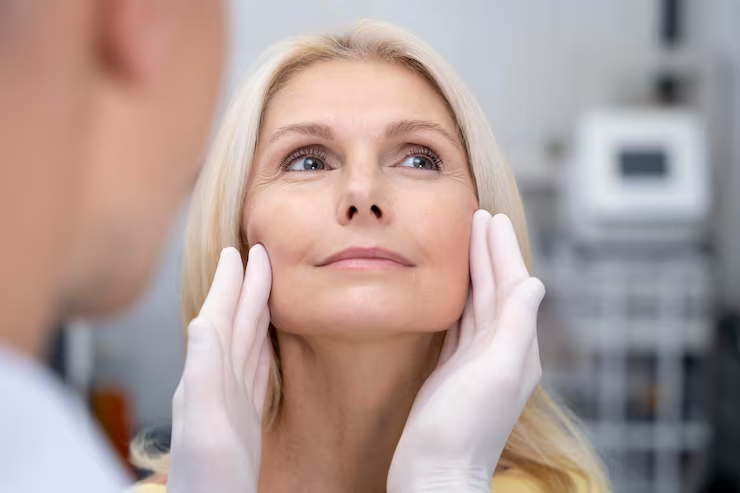
What is a Skin Tightening Diet ?
A skin tightening diet emphasizes nutrient-dense foods that enhance the skin’s structural strength and overall elasticity. These foods work from within to repair and rejuvenate skin tissue, making the skin appear firmer and more youthful. It’s not just about looking good—it’s about nourishing your body with the right fuel to support healthy skin aging.
Key components of a skin tightening diet include foods rich in collagen or those that stimulate its production, such as bone broth, citrus fruits, berries, and leafy greens. Collagen is the protein responsible for maintaining skin firmness, but its natural production slows down with age. Fortunately, specific nutrients like vitamin C, zinc, and amino acids can help boost collagen synthesis.
In addition, foods that fight inflammation and oxidative stress—such as fatty fish, nuts, and colorful vegetables—are essential in a skin tightening diet. These foods protect skin cells from damage, improve hydration, and reduce signs of aging like sagging and wrinkles.
Why is Diet Important for Skin Tightening ?
While skincare products can provide temporary improvements, a skin tightening diet offers a lasting, natural way to enhance skin health from the inside out. Topical solutions may address surface-level concerns, but real transformation begins with nutrition that supports skin structure and function.
By choosing the right foods, you provide your body with the essential nutrients it needs to build and maintain collagen and elastin—key proteins for firm, youthful skin. A well-balanced skin tightening diet includes antioxidants, healthy fats, protein, and vitamins like A, C, and E, all of which work together to protect against premature aging and promote skin renewal.
Incorporating these nutrients into your daily meals not only improves the skin’s appearance but also boosts hydration and resilience. Over time, a consistent skin tightening diet leads to visible results such as reduced sagging, fewer wrinkles, and a glowing complexion, making it a sustainable solution for long-term skin vitality.
Diet plays a vital role in skin health because it directly influences:
Collagen production: Collagen is the protein that provides structure to your skin. Without sufficient collagen, skin loses its firmness and starts to sag.
Elasticity and hydration: Proper nutrients help retain skin moisture and elasticity, making the skin appear plump and firm.
Reduction of free radicals: Diets rich in antioxidants help protect the skin from damage caused by free radicals, which contribute to the breakdown of skin’s structural integrity.
Inflammation: Certain foods help reduce internal inflammation that can lead to acne, puffiness, and skin irritation.
When Should You Start a Skin Tightening Diet ?
It’s never too early to start prioritizing your skin’s health. Even in your 20s, adopting a skin tightening diet can help build a strong foundation for long-term skin elasticity and firmness. Early care ensures your skin is better equipped to resist future signs of aging like sagging or fine lines.
As you move into your 30s and 40s, collagen production begins to decline, making diet even more important. Incorporating foods rich in protein, antioxidants, healthy fats, and essential vitamins supports your skin’s ability to repair, rejuvenate, and stay supple. A skin tightening diet not only slows the aging process but also enhances your natural glow.
Over time, consistency in following a skin tightening diet leads to visible, lasting improvements. Whether you’re preventing early signs of aging or reversing existing ones, nourishing your skin from within is a smart and proactive choice for all age groups. It’s an investment in lifelong skin health.
Top Tips for a Skin Tightening Diet
Incorporate Collagen-Rich Foods
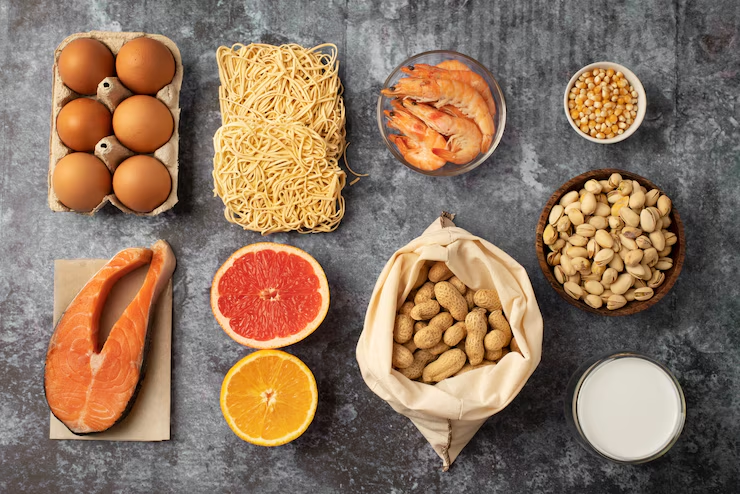
Incorporating collagen-rich foods into your daily routine is one of the most effective strategies for promoting youthful, firm skin. Collagen is a vital protein that provides structure and elasticity to the skin, but its production naturally decreases with age. Including specific foods in your meals can help replenish and stimulate collagen levels from within.
A skin tightening diet should include collagen-boosting foods such as bone broth, chicken skin, fish skin, and egg whites. These natural sources provide amino acids like glycine and proline, which are essential for collagen synthesis. Additionally, foods rich in vitamin C—such as oranges, strawberries, and bell peppers—support the body’s ability to produce collagen effectively.
By making collagen-rich foods a consistent part of your skin tightening diet, you can enhance your skin’s firmness and reduce signs of aging over time. This internal nourishment works synergistically with external skincare for long-lasting, visible results.
Best Foods:
Bone broth: Rich in gelatin and collagen, bone broth is one of the best sources to boost collagen levels.
Fatty fish: Fish like salmon and mackerel are rich in omega-3 fatty acids that support collagen production and help reduce inflammation in the skin.
Eggs: Eggs are an excellent source of proline, an amino acid that helps in collagen formation.
Chicken and turkey (with skin): These are also rich in collagen, especially the connective tissue found in the skin and bones.
Benefits:
Stimulates collagen production to improve skin elasticity.
Helps improve the structure of the skin, reducing wrinkles.
Keeps the skin smooth and hydrated.
Boost Vitamin C Intake
Vitamin C plays a crucial role in maintaining youthful, firm skin, making it a cornerstone of any effective skin tightening diet. This essential nutrient supports collagen synthesis, the process that keeps skin elastic, smooth, and resilient. Without adequate vitamin C, the body cannot form enough collagen, which can lead to sagging and fine lines.
Beyond collagen production, vitamin C is a potent antioxidant that protects the skin from oxidative stress caused by free radicals. These unstable molecules, often generated by UV exposure, pollution, and poor lifestyle habits, break down collagen and elastin fibers. By neutralizing them, vitamin C helps maintain skin firmness and delay the signs of aging.
To incorporate vitamin C into your skin tightening diet, include foods like oranges, kiwis, strawberries, bell peppers, and broccoli. Consistent intake through natural sources helps reinforce skin structure, giving you a healthier and more youthful appearance from the inside out.
Best Foods:
Citrus fruits: Oranges, grapefruits, and lemons are excellent sources of vitamin C.
Bell peppers: Red bell peppers contain more vitamin C than oranges.
Kiwi: Another fruit that’s packed with vitamin C and other antioxidants.
Strawberries and raspberries: High in vitamin C and antioxidants that protect the skin.
Benefits:
Boosts collagen production and enhances skin elasticity.
Helps repair damaged skin and reduces the appearance of fine lines.
Reduces pigmentation and brightens the skin.
Stay Hydrated with Water and Electrolytes
Staying hydrated is a fundamental part of any effective skin tightening diet. Water plays a critical role in maintaining skin elasticity, texture, and tone. When your body is well-hydrated, skin cells are plumper and more resilient, giving your face and body a firmer appearance. Dehydrated skin, on the other hand, can look dull, loose, and prematurely aged.
In addition to drinking plenty of water, replenishing electrolytes—such as sodium, potassium, and magnesium—is key for maintaining fluid balance and cellular function. These minerals help your body retain moisture and support healthy skin metabolism, which contributes to tighter and more vibrant skin.
To include hydration in your skin tightening diet, aim to drink at least 8 glasses of water daily and consume electrolyte-rich foods like coconut water, bananas, avocados, and leafy greens. A well-hydrated body supports skin health from the inside out, naturally reducing sagging and promoting a more youthful glow.
Best Hydrating Foods and Drinks:
Water: The best and simplest way to hydrate your skin.
Coconut water: Contains natural electrolytes that help hydrate skin cells.
Cucumber: Contains 95% water, making it great for keeping the skin hydrated.
Watermelon: Another hydrating food rich in water, along with lycopene, which helps protect the skin from UV damage.
Benefits:
Keeps skin cells hydrated and nourished.
Helps reduce the appearance of fine lines caused by dryness.
Promotes a healthy skin barrier function.
Add Healthy Fats to Your Diet
Healthy fats are a crucial component of a well-rounded skin tightening diet. They play a key role in maintaining skin hydration and elasticity by nourishing skin cells from within. These fats help prevent dryness and flakiness, which are common signs of aging and reduced collagen production.
Omega-3 and omega-6 fatty acids, found in foods like fatty fish (salmon, mackerel), flaxseeds, walnuts, and chia seeds, support the skin’s natural barrier. This barrier keeps moisture locked in and shields the skin from environmental damage and inflammation. As a result, skin appears smoother, firmer, and more resilient.
Incorporating these healthy fats into your skin tightening diet can significantly improve your skin’s tone and texture over time. Rather than relying solely on topical creams, nourishing your skin from within ensures long-lasting benefits. Aim to include a balance of plant-based and marine sources of healthy fats for optimal skin tightening and overall skin health.
Best Foods:
Avocados: Packed with healthy monounsaturated fats that help keep skin smooth.
Olive oil: Rich in antioxidants and healthy fats, it can help improve skin hydration.
Nuts (especially walnuts and almonds): These contain omega-3s that help fight inflammation and support skin structure.
Fatty fish (salmon, sardines): Rich in omega-3 fatty acids that promote skin elasticity.
Benefits:
Reduces skin dryness and flakiness.
Boosts collagen production.
Protects against UV damage and environmental pollutants.
Consume Protein-Rich Foods
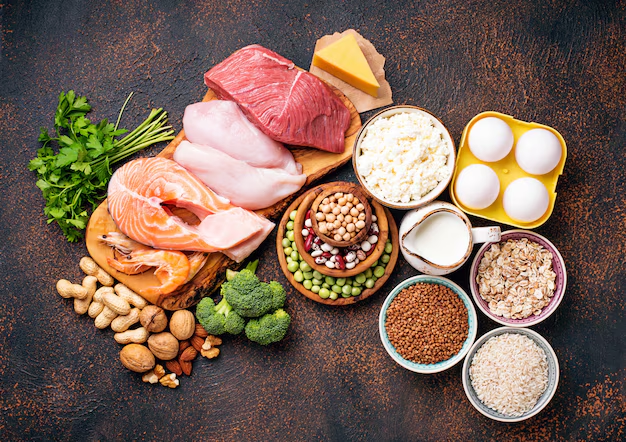
Protein plays a vital role in any skin tightening diet, as it supports skin repair, regeneration, and structural integrity. When you consume adequate protein, your body gains access to essential amino acids—particularly proline and glycine—that are crucial for the production of collagen and elastin. These two proteins are responsible for maintaining the skin’s firmness, elasticity, and youthful appearance.
Lean meats, poultry, fish, eggs, legumes, and dairy products are all excellent sources of protein. Incorporating a variety of these into your meals ensures a steady supply of amino acids necessary for skin cell turnover and recovery from daily damage caused by sun exposure, pollution, and aging.
Including sufficient protein in your skin tightening diet can lead to noticeably firmer and more toned skin over time. It not only helps preserve your skin’s elasticity but also supports the strength of underlying muscles, which further enhances the lifted, youthful look of the skin.
Best Foods:
Chicken, turkey, and lean meats: Great sources of high-quality protein.
Tofu and tempeh: Excellent plant-based protein options.
Legumes and lentils: High in protein and amino acids necessary for skin repair.
Greek yogurt: Provides protein and probiotics that support gut health, which can reflect positively on your skin.
Benefits:
Supports the production of collagen and elastin.
Helps skin repair and regeneration.
Promotes stronger, firmer skin.
Use Antioxidant-Rich Foods
Antioxidants are a key component of any effective skin tightening diet. They help neutralize harmful free radicals—unstable molecules that damage skin cells and accelerate signs of aging like wrinkles, fine lines, and sagging. By reducing oxidative stress, antioxidants protect skin structure and promote a more youthful, firm appearance.
Fruits and vegetables such as berries, spinach, kale, and carrots are rich in antioxidants like vitamin C, vitamin E, beta-carotene, and selenium. These nutrients not only support collagen production but also help repair and renew damaged skin cells. Including a colorful variety of antioxidant-rich foods in your daily meals can significantly improve your skin’s texture and elasticity.
Regular intake of antioxidants as part of your skin tightening diet works from the inside out, offering long-term protection and rejuvenation. Combined with proper hydration and other essential nutrients, antioxidants form a strong defense against aging and help maintain firm, glowing, and resilient skin.
Best Foods:
Berries (blueberries, raspberries, blackberries): Packed with antioxidants like anthocyanins, which protect skin cells.
Green leafy vegetables (spinach, kale): Rich in vitamins A, C, and K, all of which support skin health.
Dark chocolate (70% cacao or higher): Contains antioxidants like flavonoids, which improve blood flow to the skin.
Tomatoes: Rich in lycopene, an antioxidant that protects the skin from UV damage.
Benefits:
Protects skin from oxidative stress and premature aging.
Reduces wrinkles and fine lines.
Helps maintain healthy, glowing skin.
Include Zinc-Rich Foods
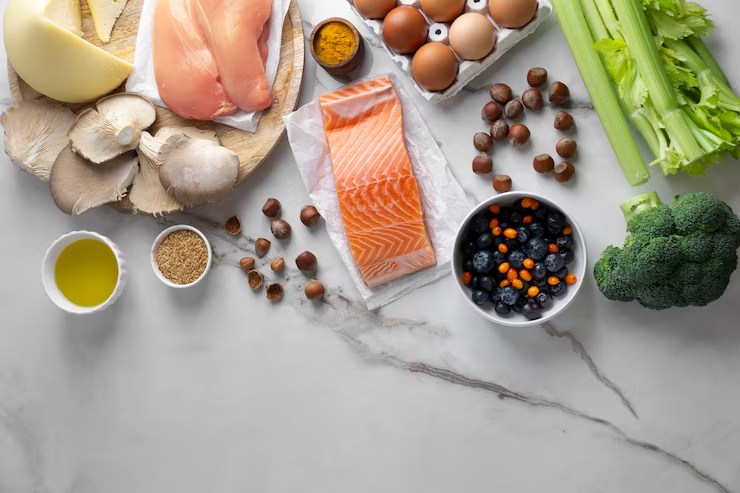
Zinc is a vital mineral that supports skin repair and regeneration, making it an essential component of a skin tightening diet. It aids in wound healing, controls inflammation, and promotes the production of new, healthy skin cells. By assisting in these processes, zinc helps maintain firm and youthful skin.
In addition to regeneration, zinc plays a key role in collagen synthesis—the structural protein that gives skin its elasticity and strength. A diet lacking in zinc can slow down skin renewal and contribute to sagging or wrinkling. Foods rich in zinc include pumpkin seeds, lentils, chickpeas, oysters, and nuts, which can easily be incorporated into daily meals.
Zinc also provides protection from harmful UV rays, reducing the risk of sun-induced skin damage and premature aging. Including this mineral in your skin tightening diet enhances the skin’s resilience, supports firmness, and helps maintain a youthful appearance as part of a complete skin health strategy.
Best Foods:
Oysters: One of the best sources of zinc.
Pumpkin seeds: A fantastic plant-based source of zinc.
Cashews and almonds: Nuts that provide zinc along with healthy fats.
Legumes and beans: High in zinc and other essential minerals.
Benefits:
Helps in collagen synthesis.
Reduces acne and inflammation.
Improves the overall appearance and texture of the skin.
Reduce Sugar Intake
High sugar consumption can significantly hinder your efforts toward a youthful appearance, making it a key factor to avoid in a skin tightening diet. When excess sugar is consumed, it triggers a process called glycation, where sugar molecules bind to collagen and elastin—two vital proteins responsible for skin’s strength and elasticity.
This glycation process weakens these proteins, leading to a breakdown of skin structure. Over time, this results in sagging, fine lines, and dull-looking skin. Even if you’re eating nutrient-rich foods, a high-sugar intake can counteract their skin-boosting effects and accelerate signs of aging.
To support firm, healthy skin, it’s essential to reduce refined sugars found in sweets, sugary drinks, and processed foods. Instead, opt for natural sources like fruits and whole grains that provide fiber and antioxidants without spiking blood sugar. Minimizing sugar is a foundational step in creating an effective skin tightening diet that promotes lasting skin firmness and glow.
Foods to Avoid or Limit:
Sugary snacks and drinks
Processed foods high in refined carbs (white bread, pastries)
Sugary cereals
Benefits:
Prevents the breakdown of collagen and elastin.
Reduces inflammation and skin damage.
Helps maintain firm, youthful skin.
Conclusion
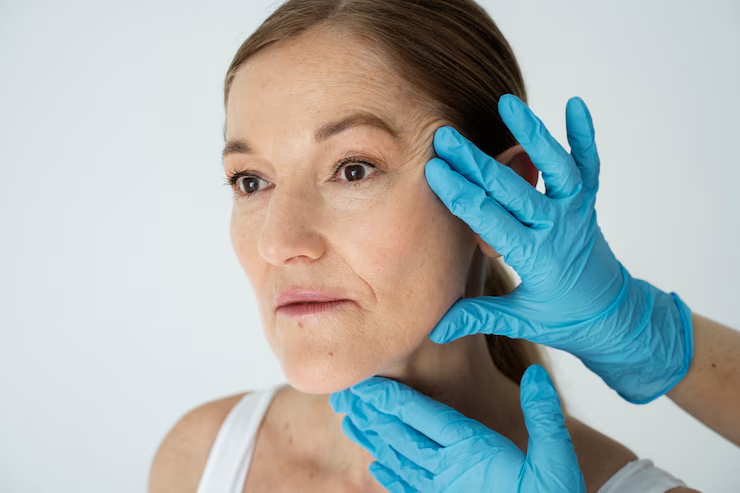
By incorporating these eight essential dietary tips into your daily routine, you can lay the foundation for a highly effective skin tightening diet. Nourishing your body from within is one of the most sustainable ways to enhance your skin’s firmness, tone, and elasticity over time.
Eating collagen-rich foods, staying well-hydrated, and including key nutrients like vitamin C, zinc, healthy fats, and protein helps support the structural integrity of your skin. These elements not only prevent premature aging but also aid in repairing skin damage and maintaining a healthy glow. Antioxidants further protect skin cells from oxidative stress.
A consistent skin tightening diet that’s filled with whole, unprocessed foods will gradually show results in your complexion. It’s not about quick fixes—it’s about long-term care through the right nutrition. When your body gets what it needs daily, your skin reflects that care with improved firmness, radiance, and resilience. Your plate can truly become your best skincare ally.
FAQs
Q1. What are the best foods for skin tightening ?
The best foods for skin tightening are those that are rich in collagen, vitamin C, antioxidants, healthy fats, and protein. These include bone broth, citrus fruits, fish, avocados, and leafy greens.
Q2. How long will it take to see results from a skin-tightening diet ?
Results can vary depending on age, genetics, and lifestyle factors. However, most people begin to notice improvements in skin texture and firmness within 4-6 weeks of consistently following a skin-tightening diet.
Q3. Can I tighten sagging skin without surgery ?
Yes! A balanced diet rich in collagen-boosting foods, antioxidants, and essential vitamins can help tighten and firm skin naturally over time. While it may not provide the same immediate results as surgery, the effects can be significant.
Q4. Are there any specific supplements for skin tightening ?
Supplements like collagen peptides, vitamin C, and hyaluronic acid can help boost skin firmness. Always consult with a healthcare provider before adding new supplements to your routine.
Q5. Is sugar bad for skin elasticity ?
Yes, excessive sugar intake can damage collagen and elastin in the skin, leading to loss of elasticity and premature aging. Reducing sugar can help maintain firmer, more youthful skin.


